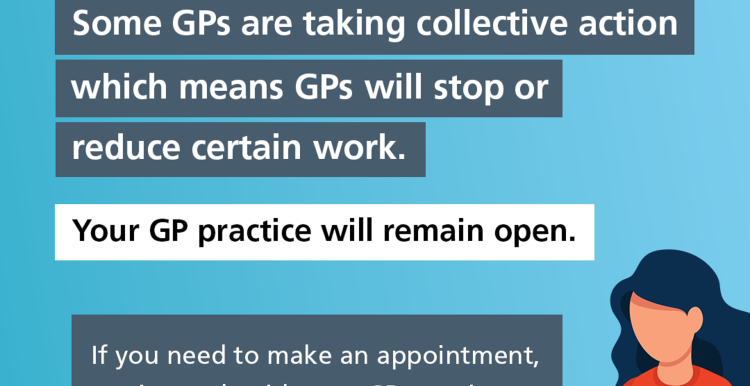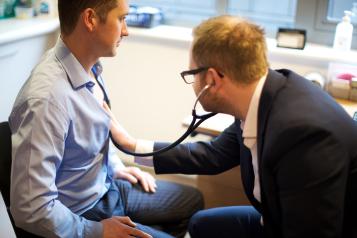GP collective action - patient information
The NHS is asking the public to continue to come forward as usual for care.

If you have an appointment with your GP practice, you should go ahead and attend as normal - unless told otherwise.
Practices will still be open between 8 am-6:30 pm Monday-Friday, however, some GPs may direct patients to other local services.
During collective action, GP practices are still required to:
- Make appointments available
- Provide advice or care to patients by another means
- Advise on alternative services
- Provide access to prescriptions, long-term condition management, vaccinations, diagnoses and referral (including where clinically urgent)
Practices will also continue to take into account the needs of the patient and the benefits of continuity of care.
As always, patients can also use 111 online for health needs and only use 999 in a serious or life-threatening emergency. More information on when to call 999 and when to go to A&E is available via the NHS website.
Your local pharmacist may also be able to offer treatment and prescription medicine for some conditions, without you needing to see a GP. Pharmacists can also offer information on new and repeat prescriptions, self care and many offer services such as emergency contraception, blood pressure checks and more.
Conditions that pharmacists can treat as part of Pharmacy First are:
- earache (aged 1 to 17 years)
- impetigo (aged 1 year and over)
- infected insect bites (aged 1 year and over)
- shingles (aged 18 years and over)
- sinusitis (aged 12 years and over)
- sore throat (aged 5 years and over)
- urinary tract infections or UTIs (women aged 16 to 64 years)
If you go to a pharmacy with one of these conditions, the pharmacist will offer you advice, treatment or refer you to a GP or other healthcare professional if needed.


